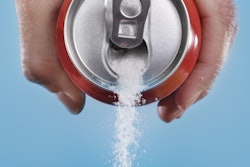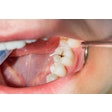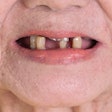
A recent animal study shows that type 1 diabetes can negatively affect the microhardness of enamel and dentine, according to findings published in the Archives of Oral Biology.
Previous animal and human studies have demonstrated that those with diabetes are more prone to oral infections and tooth loss, and they have higher rates of caries.The mechanical properties of natural teeth are important. Teeth, after all, perform many daily functions, including incision, laceration, and grinding of food. Any alterations in the hard tissues of teeth, including the enamel and dentine, may lead to severe consequences for individuals.
To study the effect of diabetes on the microhardness of enamel and dentine, researchers used streptozotocin to induce type 1 diabetes mellitus in mice. By using streptozotocin in mice, researchers hypothesized that the model could simulate influences that are induced as a result of type 1 diabetes.
Diabetic mice experienced a significant decrease in the microhardness of enamel after 12 weeks of streptozotocin-induced diabetes and a decrease in the microhardness of dentine after 28 weeks. The findings suggest that type 1 diabetes affects the microhardness of enamel much more rapidly and severely than the microhardness of dentine.
The researchers attributed the observed changes to the adverse influence of type 1 diabetes on metabolic functions of the ameloblasts and odontoblasts. Other explanations as to why diabetes has such drastic negative effects on enamel and dentine include the following:
- A decrease in the thickness of enamel and dentine
- Changes in the amount of mineral ions that accelerate the remineralization of the dentine matrix
- An inhibitory effect of hyperglycemia on the mineralization of enamel and dentine
- A reduction in the amount of calcium and phosphorus in tooth enamel
- An alteration in the enamel prism's orientation and arrangement, which may influence the effector molecules, like enamel proteins
- Interference caused by hyperglycemia with the maturation and mineralization of the collagen matrix during the formation of dentine
"Diabetes induces negative changes in the chemical composition and mechanical properties of enamel and dentine in a rat model," wrote the study authors, led by Dr. Mohammad Ali Saghiri of the Rutgers School of Dental Medicine in New Jersey (Arch Oral Biol, July 2022, Vol.139, 105434).



















